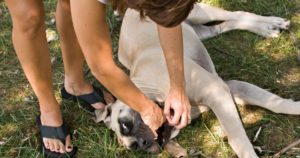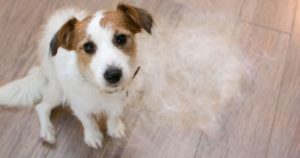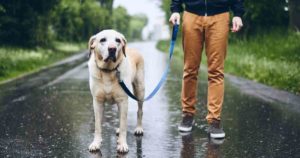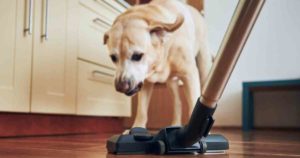Let’s be honest, sleeping puppies are the cutest things on Earth, bar none. Not even sleeping babies can compare to the cuteness of a puppy curled up in a little ball of fuzz, dozing off to sleep after a long day of playing.
Sometimes, little puppies can be quite vocal during their sleep. Most of the time, it’s quite fun to watch a puppy when it’s trying to run a marathon in its dreams. It’s so cute, and looks like it wants to keep you smiling, even when it’s asleep!
Occasionally, though, a dog’s sleep behavior can be a little concerning. While dogs can be quite vocal, they can’t outright speak to us to tell us if they aren’t feeling well.
Read on to find out why puppies pant in their sleep, what it means, and when you should be concerned.
Puppy Panting in Sleep – Why This Happens
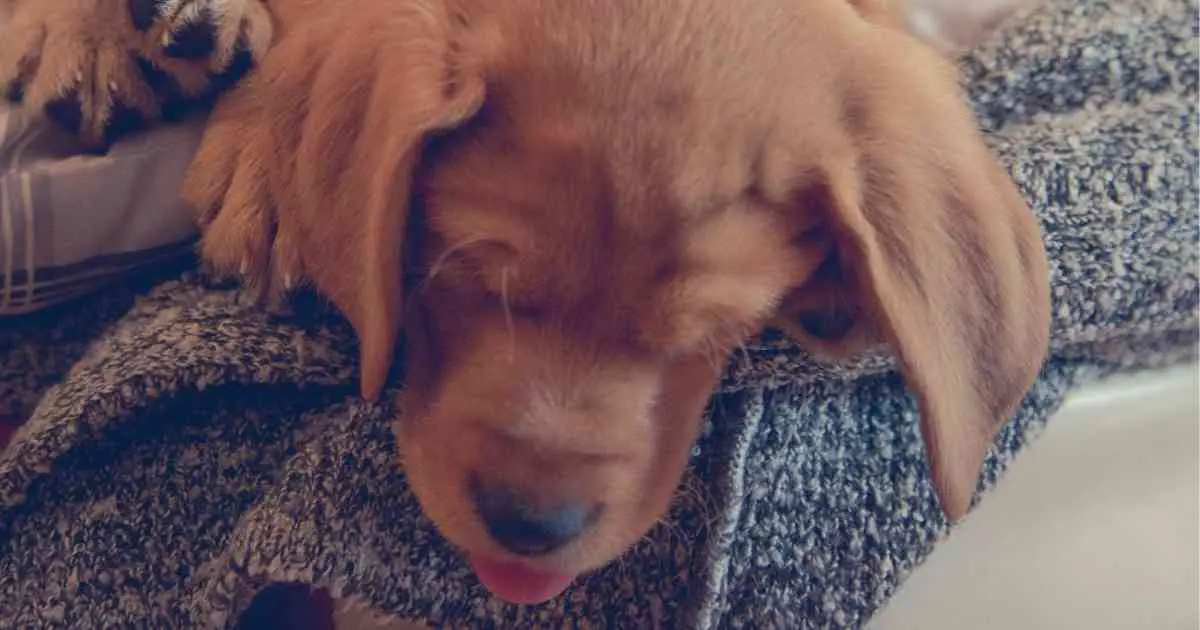
If you’ve had a dog before, you probably know it can be just as animated while it sleeps as it is during the day. From leg twitches to tail wagging to cute little sleep woofs, a dog always seems to have something going on while it sleeps.
You might have noticed sometimes your puppy has very heavy breathing or excessive panting while it’s sleeping. The most common reason for this perplexing behavior is shockingly human in origin. Your pup is probably just having a really, really interesting dream!
In the same way you’ve probably been startled awake after a vivid dream or nightmare, a dog can also dream similarly. Dreams can be a powerful trigger of physical behavior during sleep, and can cause dogs and humans to breathe heavily and alarmingly. While a dream itself might be quite intense, rest assured, there’s nothing to worry about for your dog.
Dogs are vivid dreamers just like we are. When they wake up, they’ll quickly calm down and return to a normal breathing rate – though they might be a little sad to realize whatever excited them in their sleep isn’t actually real!
Another very common explanation defining a puppy panting in sleep is that your dog is simply warm. While sweating alone does not indicate a potential health problem, dogs can’t sweat in the same way humans do. They don’t actually have sweat glands – they need to “sweat” by rapidly breathing. If your dog’s body temperature gets a little too high from being in a warm room or playing outside, it’s completely normal to see your dog panting heavily to try to cool itself down.
The last common reason for rapid breathing during sleep is part of your puppy’s natural growth process. Dogs grow and age faster than humans do. To support this rapid growth, puppies need a high level of blood oxygenation to support their cellular metabolism. Rapid breathing could just be a sign that your puppy is growing into an adult dog.
How can you know if your dog’s heavy breathing is simply a result of a vivid dream, another natural process, or something more indicative of a health condition? Start by observing your dog closely during the day. If it seems fine and you don’t notice any out-of-the-ordinary behavior, it’s more than likely your dog is just a very vivid dreamer.
Dogs usually have a respiratory rate of 10 to 35 breaths per minute, and this can vary greatly based on the breed and activity level of the dog. If you notice abnormal panting during the day that continues into the dog’s sleep cycle, then it could be your dog is trying to tell you something is amiss.
When to Be Concerned
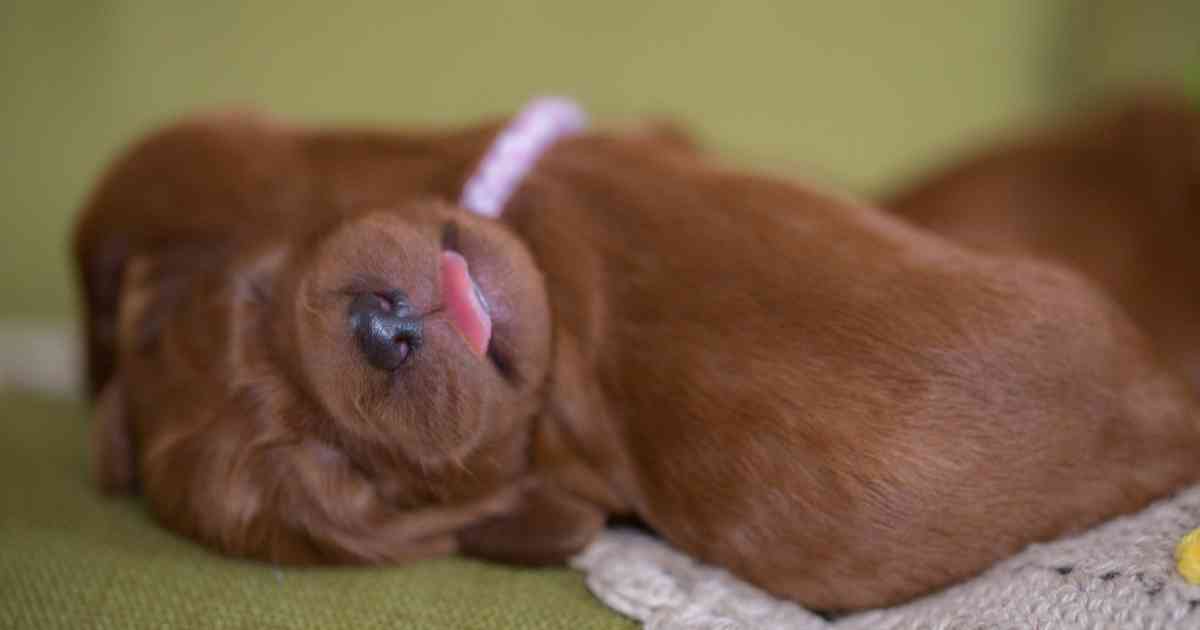
Ultimately, if you’re ever concerned about your dog’s health, you should contact the veterinarian. You know your dog best, and if you’re not sure if it’s ok, it’s always better to err on the side of caution. While your puppy panting in its sleep is more than likely nothing serious, sometimes this behavior indicates real respiratory distress.
A few medical conditions that can be indicated by heavy panting during sleep are:
- Extreme stress or anxiety
- Parasite infestation
- Food poisoning
- Illness
If your puppy is abnormally breathing during sleep because of stress and anxiety, it’ll probably give you some clues while it’s awake. If you recently got your puppy, it might simply be that he’s adjusting to his new environment.
A parasite infestation, such as worms, can be a common problem if you live in a high-density population area, such as New York City or Los Angeles. It might be necessary to have a long stare at your puppy’s poop to look for these unsightly creatures. However, it’s recommended to go to a vet for testing. Heartworms could be the culprit, and a blood test would be needed, as they would not show up in your puppy’s stool.
Lastly, your puppy’s panting during sleep could be caused by food poisoning or another illness – some of these illnesses could be serious. Food poisoning is sadly common in puppies, as they don’t have a sense of dietary discretion. Most puppies eat anything they can get their paws on!
Parvovirus is another potential cause of breathing difficulties during sleep, and this needs to be investigated by your vet immediately. Parvo is uncommon, but extremely serious. Early detection and treatment will give your pup the best chance at recovering fully.
Wrapping it Up
If your puppy is panting in its sleep, the overwhelming majority of the time, there is absolutely nothing to be concerned about. Your pup might be a little too warm, or just having a really great dream. But, keep an eye on your dog. If you’re concerned about your puppy’s health, be sure to contact your veterinarian so that you and your puppy can sleep safely and soundly!

